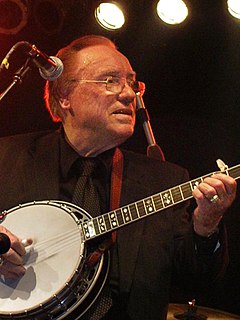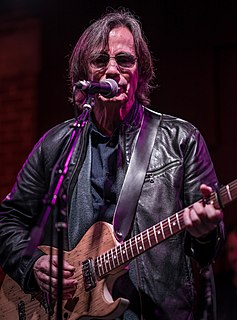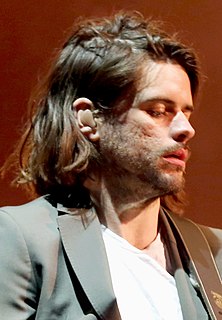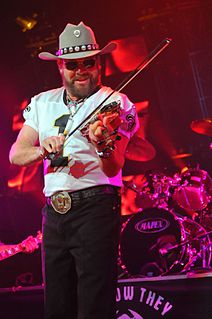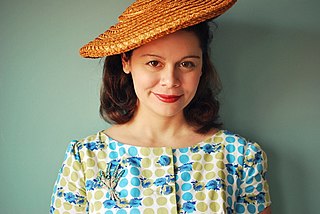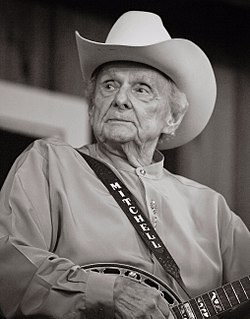A Quote by Bela Fleck
And then Earl Scruggs comes along and transforms the banjo into a virtuosic modern instrument. For the first time, the Southern banjo style becomes the identity of the banjo, and everything from before is wiped off of people's consciousness by the power of that explosion.
Related Quotes
Earl Scruggs had this thing that it wasn't just the technique or even the instrument. It was him. There was this soulful quality that came through that made you - if you're somebody like me who was, I guess, supposed to play the banjo, it made you stop in your tracks, and you couldn't do anything until you got done hearing him play, and then immediately you'd have to go try and find a banjo.
I first heard the banjo on the Beverly Hillbillies, and from then on I was banjo-conscious. But I didn't actually get one until my grandfather gave me one, almost by mistake. He knew I was playing a little bit of guitar. He saw a banjo at a flea market and bought it. I took it home with me and just never put it down. I was fifteen.
I mean if it wasn't for Earl Scruggs, guys like me wouldn't be doing what we're doing. I mean, he's changed so many people's lives, honestly. I was thinking about all the thousands of people that live in Nashville, like myself, that there's no reason a guy from New York would end up down there if it wasn't for the sound of Earl Scruggs' banjo coming over the airwaves and just changing my life.
It's horrible for someone to listen to someone learning any instrument - when I was first learning the banjo, I used to have to go out and sit in the car, and even in the summertime I'd have to roll up the windows. Because you just couldn't practice a banjo or a fiddle with other people around. Unless they're being paid.
I wrote a post about wanting to buy a banjo - a $300 banjo, which is a lot of money, and I don't play instruments; I don't know anything about music. I like music, and I like banjos, and I think I probably heard Steve Martin playing, and I said, 'I could do that.' And I said to my husband, I said, 'Ben, can I buy a banjo?' And he's like, 'No.'
My first banjo? My mother's sister, my aunt, lived about a mile from where we did, and she raised some hogs. And she had - her - the hog - the mother - they called the mother a sow - of a hog. And she had some pigs. Well, the pigs were real pretty, and I was going to high school and I was taking agriculture in school. And I sort of got a notion that I'd like to do that, raise some hogs. And so my aunt had this old banjo, and my mother told me, said, which do you want, the pig or a banjo? And each one of them's $5 each. I said, I'll just take the banjo.

